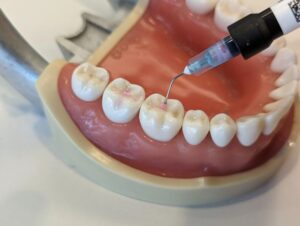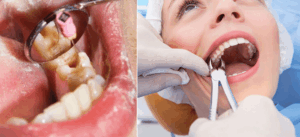If you’ve recently had oral surgery or are preparing for one, it’s natural to want a smooth and comfortable recovery. This article offers practical steps to help ease discomfort, reduce swelling, and promote healing under the care of a top-rated West Hollywood dentist. You’ll learn what to do right after the procedure, how to manage pain, care for your mouth, and maintain proper hygiene as you heal.
Immediate Post-Operative Care
After oral surgery, it’s vital to follow your dentist’s instructions carefully to reduce pain and swelling. During the first day, apply an ice pack to the affected area for about twenty minutes at a time, allowing breaks between applications.
Avoid rinsing or touching the surgical site to prevent irritation. Stick to a soft diet, rest as much as possible, and avoid strenuous activity. Take any prescribed medication exactly as directed to manage pain effectively.
Keep all follow-up appointments so your oral surgeon can monitor healing and address any concerns. Consistency with these steps encourages steady recovery and prevents complications.
Proper Pain Management Techniques
Managing pain correctly after surgery helps maintain comfort and prevents additional stress on your body. Stay consistent with your medication schedule, even before discomfort becomes intense. If pain worsens or feels unusual, contact your dental care provider promptly. Using ice packs periodically can numb the area and lessen swelling.
Eating soft foods like soups or yogurt helps avoid pressure on the healing tissues. Simple relaxation methods such as controlled breathing can also reduce tension. Following these practices can make your recovery period calmer and more manageable.
Swelling Reduction Strategies
To minimize swelling after oral surgery, use ice during the first two days to control inflammation. Keep your head slightly raised while resting, as this helps fluids drain away from the surgical area. Avoid heavy physical activity and maintain a diet of soft foods that do not require much chewing.
Take any anti-inflammatory medication prescribed by your dentist as instructed. Maintain good oral hygiene without touching the treated area to avoid irritation. With these habits, you support your body’s natural healing response and limit swelling more efficiently.
Oral Hygiene Instructions
Cleanliness is vital after oral surgery. Continue brushing your teeth carefully, using a soft-bristled toothbrush and avoiding the surgical area. Instead of mouthwash, rinse gently with warm saltwater several times a day to keep the mouth clean and comfortable.
This natural rinse helps soothe tissues and reduces bacteria without causing irritation. Avoid harsh or alcohol-based rinses, as they can delay healing and dry out your mouth. By being gentle and consistent, you lower the risk of infection and keep your recovery on track.
Dietary Recommendations for Recovery
A soft diet helps protect the surgical site and supports faster healing. Choose foods such as mashed potatoes, scrambled eggs, yogurt, smoothies, and soups, which are easy to chew and swallow. Avoid crunchy, spicy, or sticky items that could disturb the area.
Stay well-hydrated by drinking plenty of water, but skip using straws, as suction may interfere with blood clot formation. Refrain from smoking or drinking alcohol, as both can slow recovery and increase the risk of complications. Consistent attention to what you eat and drink makes a meaningful difference in how quickly you heal.
Follow-Up Care and Monitoring
Ongoing care after your procedure is just as vital as the initial recovery steps. Attend all scheduled checkups so your oral surgeon can assess healing progress and ensure there are no signs of infection. Monitor your pain and swelling at home, noting any changes or discomfort that seem unusual.
Contact your dentist if symptoms worsen or persist longer than expected. Keep following your oral care instructions even after the initial healing period, as proper maintenance helps protect the results of your surgery and your long-term dental health.
Related Topics:
- What to Eat After Oral Surgery With Stitches: Dentist-Approved Meal Ideas
- How Long Does Oral Surgery Take to Heal: Common Factors That Affect Recovery






